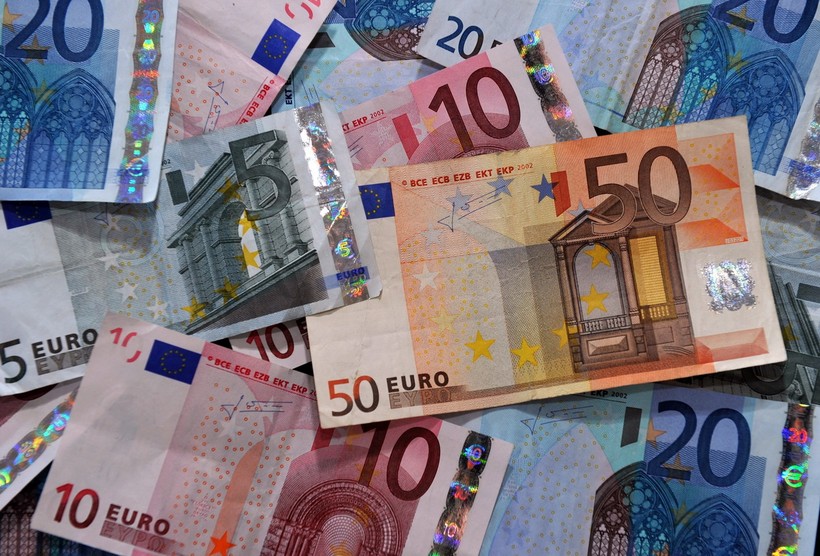
The debates are heating up as policy makers from the European Central Bank (ECB) meet this week. (Source: AFP/TTXVN)
|
Central banks have been creating waves of interest rate hikes over the past two years, tackling the question of whether their actions are effective in the face of inflation.
The debates are heating up as policy makers from the European Central Bank (ECB) meet this week, with many observers expecting ECB’s borrowing rates to start decreasing this summer.
The officials at the Federal Reserve (Fed) are also considering a cut by the end of this year, fueling hopes of skyrocketing prices.
Some economists argue that the sudden surge in prices is temporary and inflation will decrease regardless of whether central banks try to contain it with tighter monetary policy or not.
Nobel laureate Joseph Stiglitz, an economist, argues that it is not the actions of the Fed that are reducing prices of cars, oil, food, or a range of other goods, but rather the resolution of underlying supply shortages.
However, higher interest rates are often a tool chosen by central banks to increase borrowing costs for businesses, which can often lead to higher unemployment rates.
Meanwhile, households are suddenly faced with higher mortgage and housing costs, forcing them to limit spending and reduce inflation due to reduced demand.
For Stiglitz and other critics, inflation is not happening due to increased demand, but due to supply constraints caused by COVID-19 pandemic and conflicts in Ukraine.
Alan Blinder, an economist at Princeton and former Vice Chairman of the Fed, agrees that global economic shocks – essentially temporary in nature – have caused inflation, but this situation has now subsided even as economic growth on both sides of the Atlantic remains relatively robust.
Blinder argues that the actions of central banks have been heading in the right direction, but they are only of secondary importance.
On the other hand, other economists believe that it is the massive spending stimulus during the pandemic that has flooded economies with money and pushed prices higher.
This view has been criticized by Fed Chairman Jerome Powell in June 2022, who downplayed the impact of government pandemic stimulus policies but still affirmed that higher interest rates are necessary even if it means an economic downturn.
Trà My















